Getting to Know You: Ricky McPherson
This year at Britain & Co., we’re shining a spotlight onto the team behind the projects we undertake and helping you get to know them and what drives them a little better. Read on to find out a little more about one of our founding team members, what drew him to specialist decoration and what he thinks about working for Britain & Co.
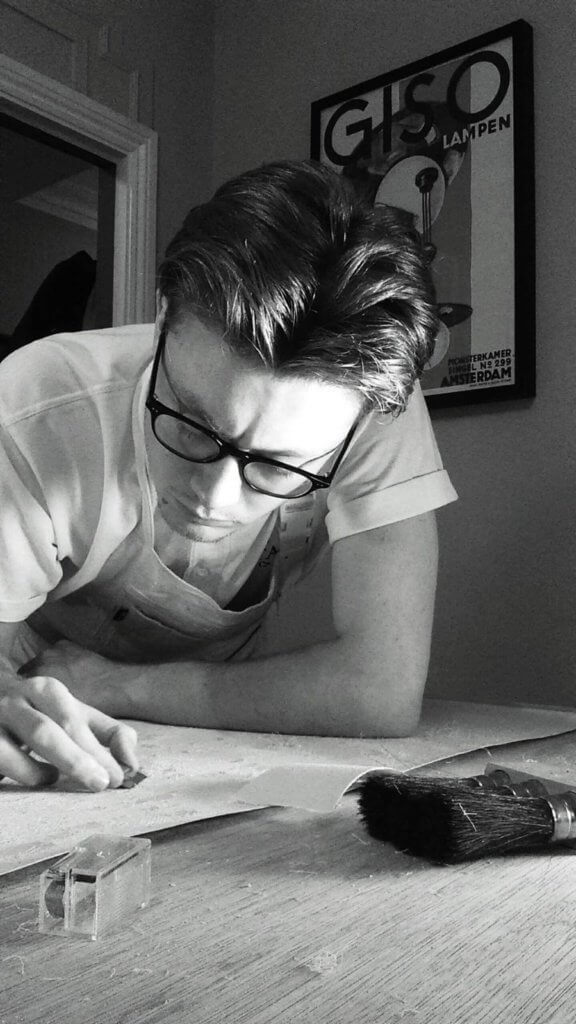
Brandsby Hall Ceiling Mural restoration 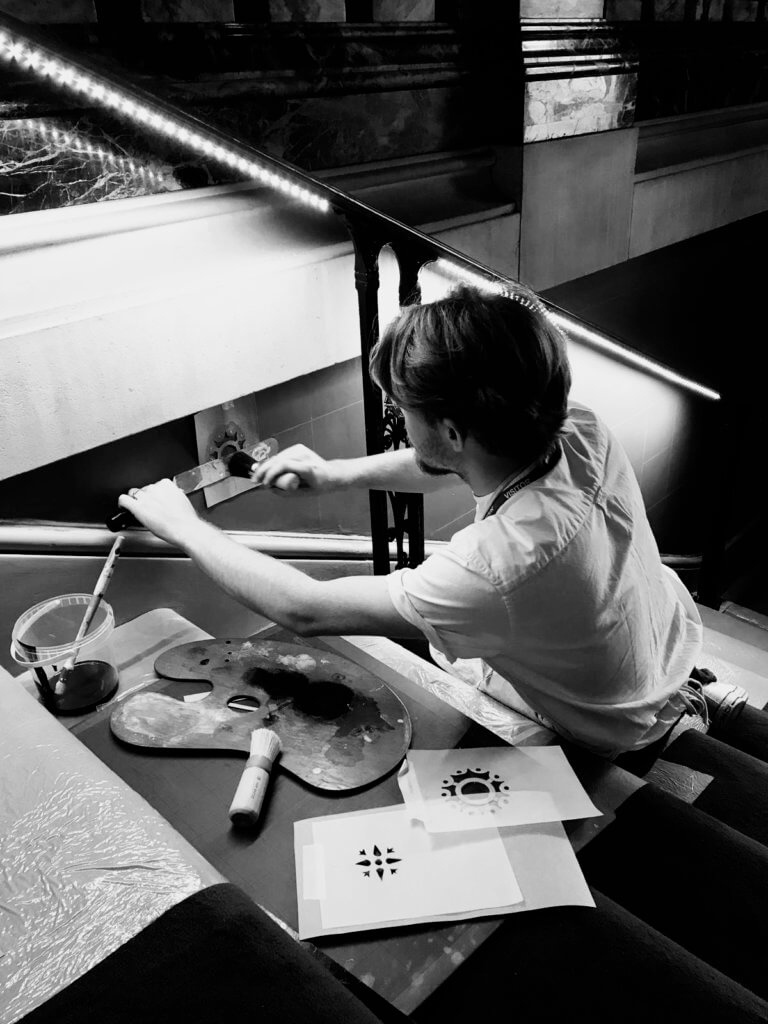
Stencilling at the
Foreign & Commonwealth Office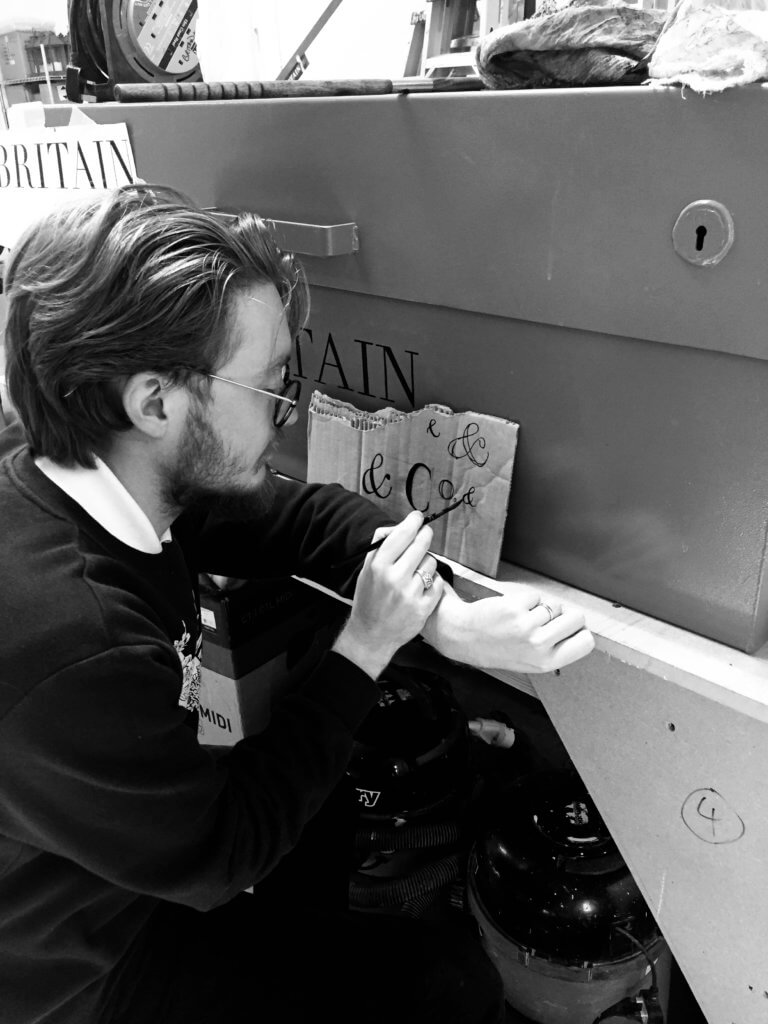
Sign-writing with Britain & Co.
Ricky, you’ve been working for Britain & Co. since the company started, and with both Chris and Cathy for longer than that. What drew you into specialist decoration in the first place?
As a youth, I was always sketching and drawing and then I found my way into graffiti at around 11 or 12 years old. I stopped doing this at 19 and started thinking about going into work. I didn’t particularly want to go to college but decided to look at studying painting and decorating as I felt that it would let me be more creative and artistic, and would be far less paperwork than other trades. During my time at college, one of my Tutors introduced me to sign-writing which I found interesting although I still didn’t really think that I would pursue it any further until I met my then girlfriend and now wife.
After we met, I wanted to do something that would interest me but would still support us financially so I decided to pursue painting and decorating as a career. I was able to use some of the artistic elements from graffiti and found that I really enjoy it. Looking back, I think a lot of my old tutors from college would be really surprised by the enthusiasm I have for the trade now.
So, what drew you specifically to specialist decoration and using older and more traditional methods and techniques?
I like the purity of it. The problem when you look at using computers to print things out is that you miss out a whole process. When I looked into it, completing an apprenticeship during the Victorian era would have taken around 7 years as you would have learnt how to grind pigments, how to mix paints and learnt how to apply various different specialist finishes. Nowadays, you can go on a day course with a paint manufacturer and gain a qualification in painting and decorating, or just go and buy some paintbrushes and get started. It’s become so much more accessible but this really affects the quality of the work that’s completed.
There’s a big difference between someone who is a painter, and someone who understands the materials and how they can be used. When you go and work in a heritage building, you can see this in the finish – the individual brush marks and the craftmanship that has been put into the work. You just don’t get that with a roller, or from a day’s training.
My wife and I recently hired some painters to come and decorate our own home, and whilst they got everything completed really quickly, the standard was lower than my own. If you’re just looking for a change of colour, it’s all fine but I think for people who have a keen eye for detail, or who want a very specific finish, there’s more of a call for a specialist decorator.
How would you describe what you do to an alien?
I enhance, beautify and embellish something decorative that has faded over time. The right decorative effect can really change how a room feels, bringing it to life or making it feel warmer, but it can also tell a story of it’s history – heraldry is a great example of this.
Moving away from decoration for a moment, if you could trade places with anyone for a day, who would it be and why?
I’d love to spend a day working in the Stock Exchange. I’m by no means money motivated, but I think that the atmosphere looks great. I’m a very ‘work-hard, play-hard’ kind of person so I think I’d really enjoy it.
When it comes to your work, who has influenced you the most?
I’ve had a lot of people that have influenced me throughout the years, but they’ve been more like stepping stones where one person has taught me something interesting which has then led to someone else and so on.
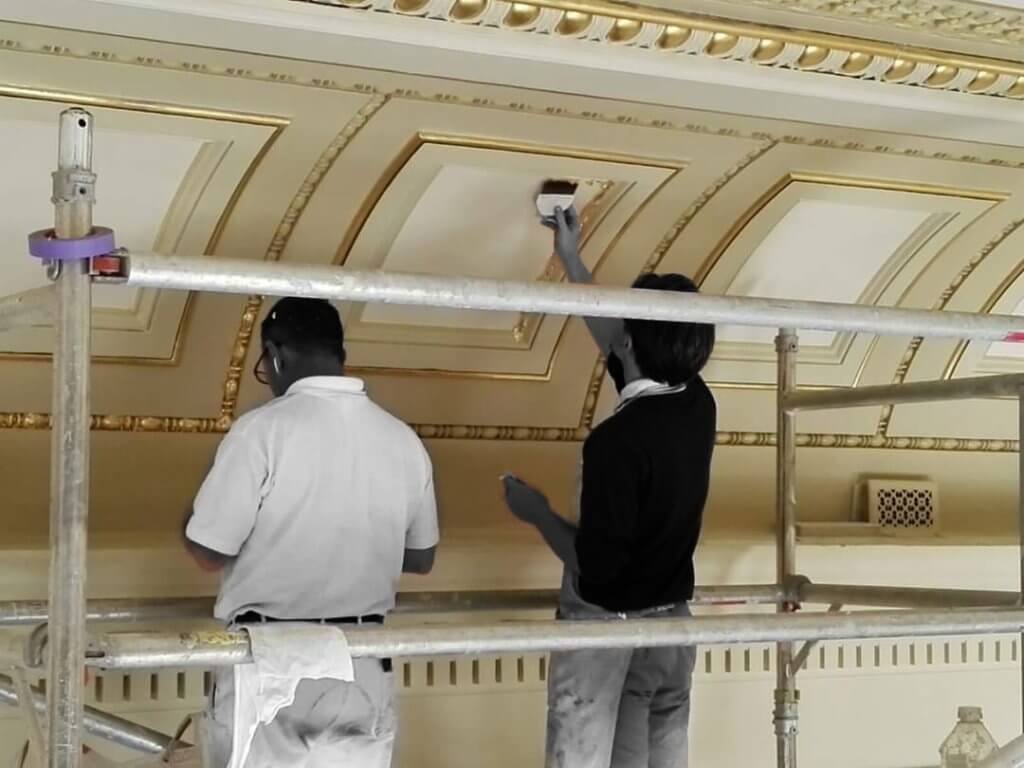
Chris Britain has been a big influence to me though. We started working together in 2014 and he has given me tonnes of opportunities, both with Britain & Co., and with previous companies we have worked for and I’ve been able to really develop myself with his support.
There are also lots of tutors who planted the initial seed when it comes to decoration. I think that you always pick things up from people that you work alongside as well but mainly, you need to have the drive and passion to continuously develop your skills, and not believe that you are the best in the business – there’s always something that you can learn.
“You need to have the drive and passion to continuously develop your skills…”
You obviously take a lot of pride in what you do. What is the most rewarding part of your job?
For me, it’s about being able to leave a mark or a legacy. I was recently working on a project at a church in Clapham, restoring a mural and throughout the whole time I was working there, I kept thinking about the person who had done the work originally – how he had lived his life, whether he was married, what he would have worn to work, whether he was still undertaking his apprenticeship and what other projects he might have worked on. I hope that 100 years from now, someone will be working on one of my projects and wonder who I was and what I was about. They may not necessarily know who I was, but I will still have left my mark in some small way.
What has been your proudest moment whilst working with Britain & Co. up until now?
I’m very reflective, so I’m always thinking about past projects and looking at how I might do things differently if I was back there now. That being said, I’m really proud of the work I did at the Foreign and Commonwealth Office back in 2018. We were doing a lot of different decorative finishes including stencilling, colour mixing and lining so I was able to use a lot of different skills. This was also one of my first projects working as a Lead Decorator so was definitely one of my favourite projects.
What has surprised you the most about working for Britain & Co.?
I think that because it was such a new company when I initially joined, I didn’t expect to be working on so many high-profile projects in such prestigious buildings so quickly. I expected the first maybe 5 years being spent working in private residences on smaller projects however, Britain & Co. took on projects in places like Kensington Palace, the Victoria & Albert Museum and the Foreign and Commonwealth Office very quickly after I joined. It’s certainly not a bad thing as it’s given me much more of an opportunity to use some of the skills that I really enjoy using in a lot of different places that I have always wanted to work in.
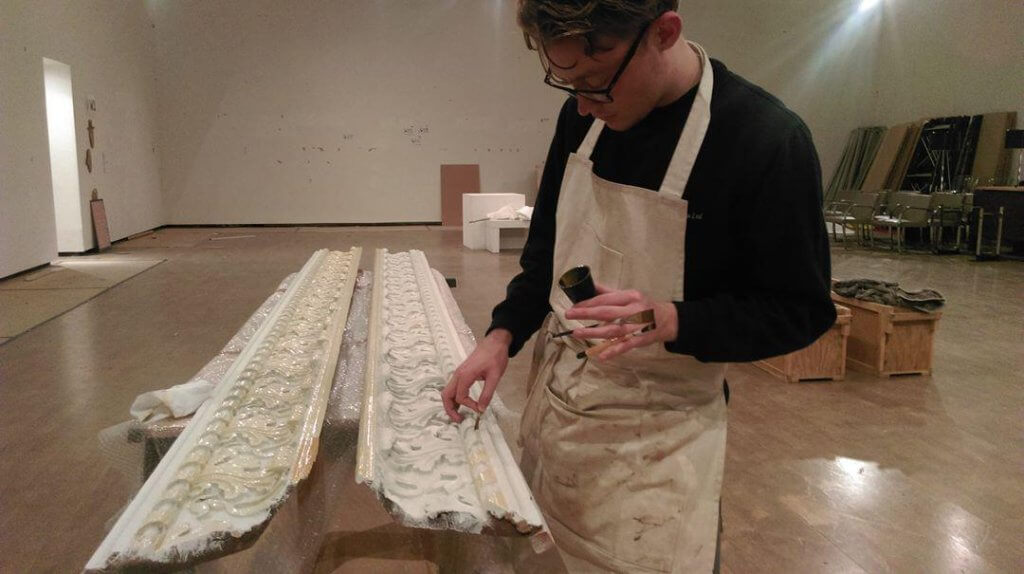
You mentioned places you’ve wanted to work in, what would be one place that you would love to work in?
I do have a bit of a bucket list of places I’d love to work, and I’ve ticked off a lot of them whilst working with Britain & Co. so far including Kensington Palace, the Foreign and Commonwealth Office, The Royal Academy of Arts and the Victoria & Albert Museum.
I’d love to work at Buckingham Palace, primarily because of the prestige associated with working there, but also because my Great Uncle did some paperhanging there in the past and I’d love to be able to say that we worked in the same place. It’s something that I found really interesting about him and I’d love for my grandchildren to feel that same thing about me.
I’d also love to work at the Red House in Bexleyheath. It’s not as well known as the other places on my list outside of the industry, but I’d find it fascinating and would love the variety of work that would be required to work somewhere like that.
What is one thing that people don’t know about you? Do you have any hidden talents/secret hobbies?
I’m a fairly open book to be fair, so most people who know me already know all about me! I am a good dancer though and I am very interested in photography and film development.
“I hope that 100 years from now, someone will be working on one of my projects and will wonder who I was and what I was about…”
What is your go-to karaoke song?
I’ve never really done karaoke but I have a wide range of music that I enjoy. I could do anything from ‘The Message’ by Grandmaster Flash, to ‘Strange Fruit’ by Billie Holiday.
What is it like working for a Family Business?
I think that it can affect how you feel about work in comparison to working for a non-family business. Working for other companies in the past, I’ve been far more focussed on how much I’m getting paid and how much I’m earning. With Britain & Co., it doesn’t feel like that and it doesn’t feel so much like work. Instead you spend time with people whose company you enjoy and you learn a lot from one another.
Sometimes, when new guys start working with us, they might have a bit more of a defensive attitude as they might have been mistreated by other companies in the past. They do realise though that Britain & Co. isn’t about taking the mickey out people and they quickly become ‘part of the family’.
Could you describe what it’s like working for Britain & Co. in three sentences?
It doesn’t feel like work at all.
It’s a constant learning experience.
It feels like your extended family.
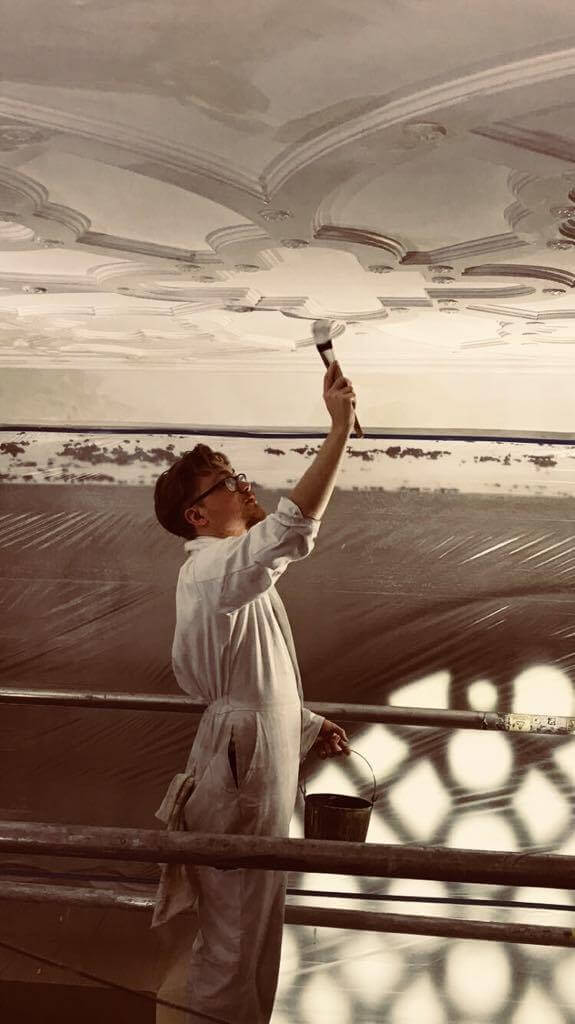
Hatfield House Armoury 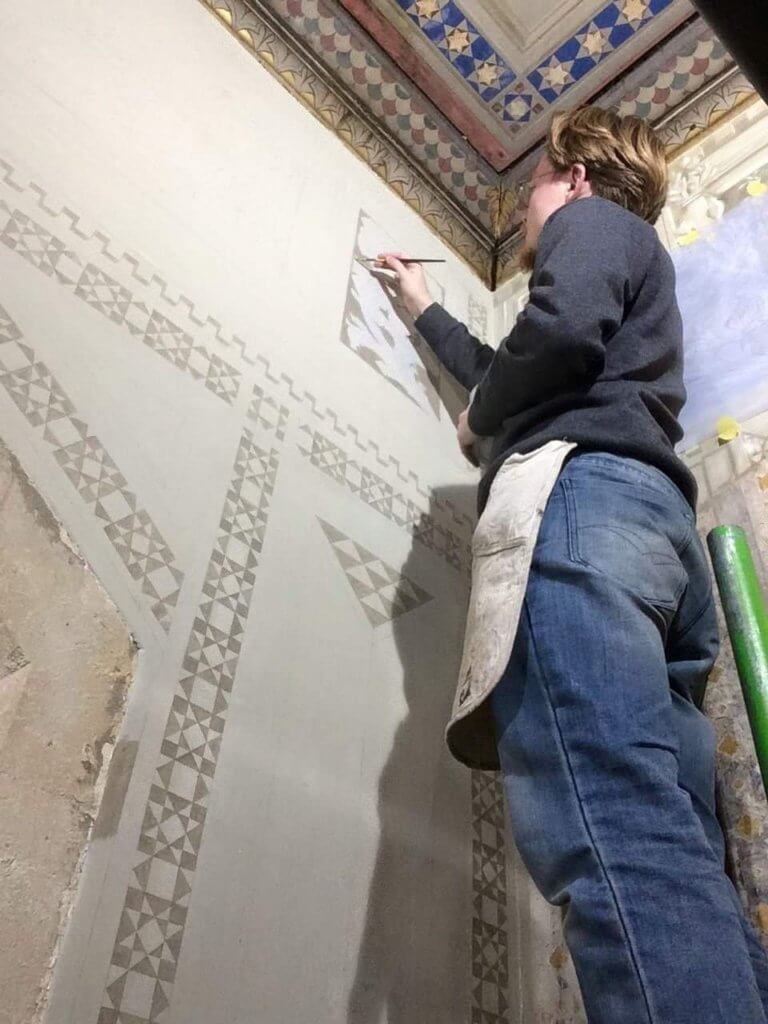
St. Etheldreda’s Church, Hatfield 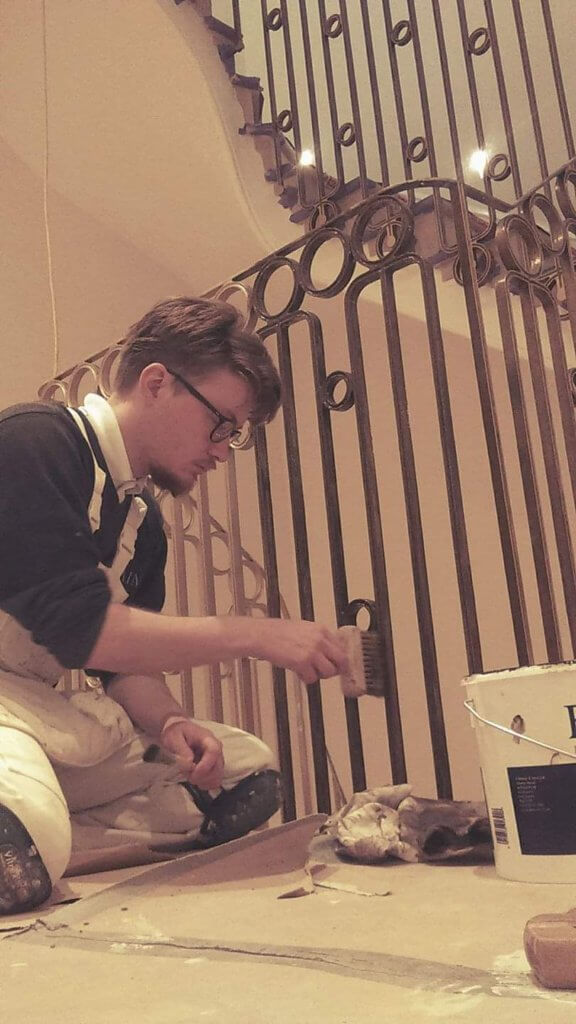
Cottesmore Gardens

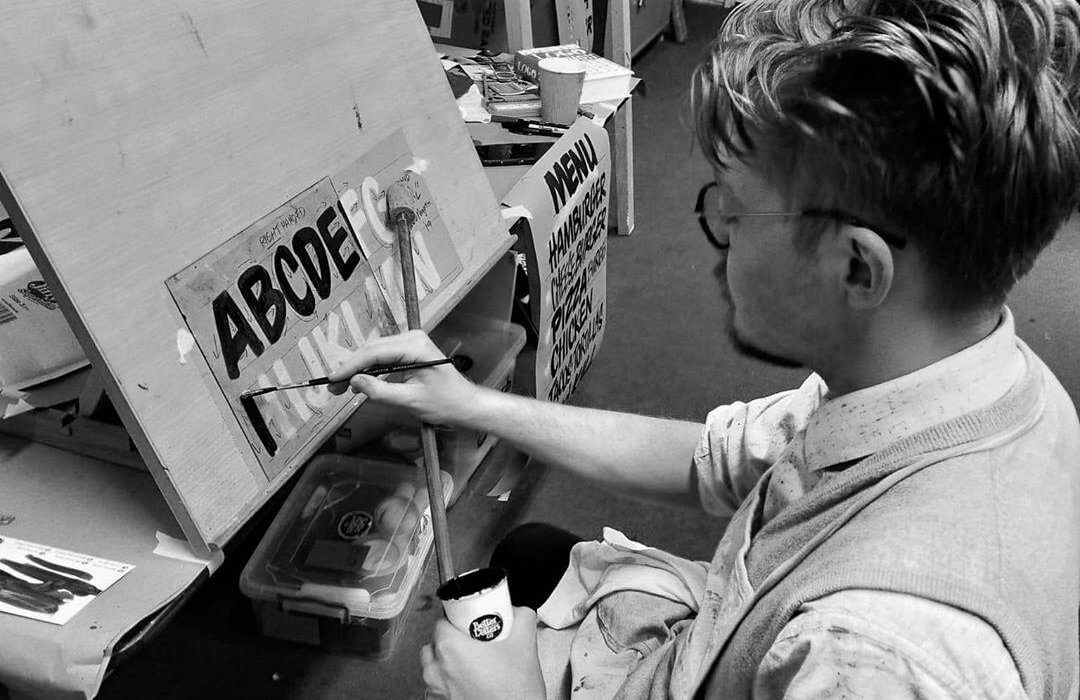
Very talented , works super hard ,constantly learning reading studying outside of work, unbelievable dedecation , that’s my boy
Mum